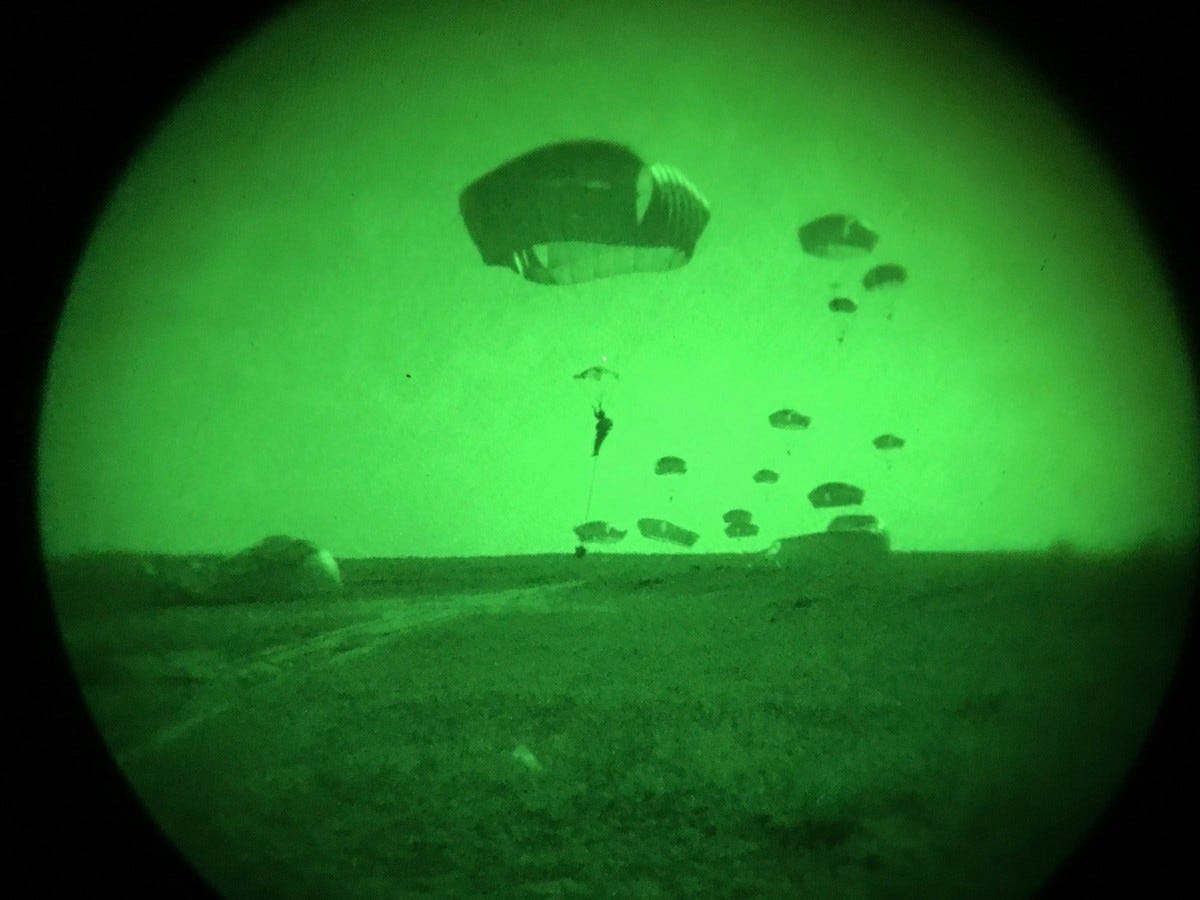Welcome to Ridgway’s Notebook, where we offer penetrating essays on military history. Told through the World War II experiences of General Matthew Ridgway and the 82nd Airborne Division, we illustrate some of the similarities between the questions asked by officers of the 82nd yesterday and today—and dissect how they came to be.
The most astute observer is the comedian. To unmask some great irony requires a commanding grasp and detached interest, an ability to live a little distance from the subject yet regard it with incisiveness. But to evoke that thunderous roar from the crowed, the comedian must understand his audience. The ironic observation is not enough. Without knowing how to land his punchline, it will fall like a deflated balloon. The comedian must grasp what an audience can relate to. This can only be done through being amongst people—living life.
The relationship between the comedian and his audience is mutually beneficial. He observes people, and understands them, and they give him something to crack jokes about.
And so it is for the relationship between the historian and the soldier.
Paratroopers thronged past to form a huddle, a sea of green and brown surrounded two men, one kitted out in parachute harness and helmet, while the bellicose voice of a sergeant conquered the air with instruction. Breaking up, the sea parted to adjoin with their parachutes. As soldiers buckled canvas shells on their backs, a huddle of officers and sergeant conferred about the missing riggers. Someone forgot to schedule them, or there was a miscommunication. The planned time-on-target—the time of the jump—was already under threat of change.
The fragility of planning in the flesh, I thought.
I was then knee-deep in researching an article on logistics in Operation Market Garden. I had interviewed several officers on the subject when I decided I may benefit from a field trip. One thing that continued to come up was the distribution of supplies once landed. It was an opportunity to see first-hand the issue which had bedeviled the 82nd Airborne in 1944—and 2023.
Historians like their facts immutable. “263 tons delivered and expended,” is a sentence one may find in a history book. Some historians would stop there, as I perhaps would have, satisfied with their computable number. But for the military officer, it leaves many unknowns. This sterile fact doesn’t tell us how a bullet moved from a drop zone, to the pouch of a paratrooper, and ultimately kept a droopy-helmeted figure at bay. As Army officers came to teach me, the bullet’s journey from bundle to barrel is of equal concern as the amount dropped.
This interaction allowed me, the historian, to view things through a different lens. It allowed me to write something fresh, and it gave the soldier something prescient. This mutual engagement, like the one which passes between the comedian and his audience, allows the historian to know what to give, and the soldier what to take. They are in harmony when a captain fresh from the Joint Readiness Training Center sits down with paper in hand and off-handily remarks, “This sounds familiar!”
The dexterity required of the historian to evoke such a response requires a comprehension of both topic and audience that is aided by touch. For in this Army captain’s remark is all the lively things a historian would grasp on a “field trip” with soldiers. As eloquently described by John Keegan, “The insight which intimacy with soldiers at this level can bring the historian enormously enhances his surety of touch in feeling his way through the inanimate landscape of documents and objects with which he must work.” In seeing the faces of soldiers burdened by, and confined in, their parachute harnesses for hours, a historian realizes what a fatiguing event it is even to sit with it attached. He can then grasp why a parachute battalion may not move swiftly after landing.
In the black chasm of Sicily Drop Zone, he can gain complete appreciation of dispersion, he can comprehend how two paratroopers can pass unaware in the Norman countryside, see the wisdom of a daylight drop in September 1944, and appreciate how night vision technology changed things.
Along the way, the historian can meet some of the finest humans on the planet, be an ambassador for a culture otherwise foreign to the broader populace, and, if he’s lucky, make some lifelong friends.








All the way!
Great read yet again. Lots of interesting points. I’ve always felt that comedians are more intelligent than the norm too.